 After a three year hiatus, Tomorrowland recently released this limitedpressing EP of songs on the mostly vinyl fledgling Red Antenna label. Anemoneis a continuation of their analog/electronic aesthetic, and it is apleasing listen overall, but not a giant leap forward in any case forSteve Baker and Nick Brackney. That's not necessarily a bad thing —it's admirable for a band to stick to their guns — but it means thatthe duo risk sounding like so many other like bands. The addition oflive drumming by Eric Morrison is a good step, but it's not enough tomake this release particularly noteworthy in their catalog. Withoutreal change there can be no evolution, and survival of the fittestwould leave Tomorrowland in yesterdayland. That said, there are severalpeaks to be found on their latest, most notably the first (and title)track. Eerie computer noise and processed beats kick it off, withswirls and deep bass joining in fairly quickly. It's a perfect bodymoving song, where body parts do their own thing and it's always fluid.Then the big beat drops in and the energy pumps up to eleven.Unfortunately, this begins a stasis that lasts for half the songs,where guitar noise and synthetic whine and gurgle meet with live orelectronic beats and just stay. There's a little play, but no realpeaks and valleys to speak of. The songs just aren't engaging enough.Occasionally I got pulled in, like on "Chromosome" or "Meiosis," butthen something breaks the streak — like the awkward drumming opening of"Catalyst" or the all-out noise of "Unfadeable" — and I reach for theeject button or the volume knob. It's nice to know Tomorrowland arestill around making the music that matters to them, but a littlereaching, even if it means falling occasionally, could take them a longway.
After a three year hiatus, Tomorrowland recently released this limitedpressing EP of songs on the mostly vinyl fledgling Red Antenna label. Anemoneis a continuation of their analog/electronic aesthetic, and it is apleasing listen overall, but not a giant leap forward in any case forSteve Baker and Nick Brackney. That's not necessarily a bad thing —it's admirable for a band to stick to their guns — but it means thatthe duo risk sounding like so many other like bands. The addition oflive drumming by Eric Morrison is a good step, but it's not enough tomake this release particularly noteworthy in their catalog. Withoutreal change there can be no evolution, and survival of the fittestwould leave Tomorrowland in yesterdayland. That said, there are severalpeaks to be found on their latest, most notably the first (and title)track. Eerie computer noise and processed beats kick it off, withswirls and deep bass joining in fairly quickly. It's a perfect bodymoving song, where body parts do their own thing and it's always fluid.Then the big beat drops in and the energy pumps up to eleven.Unfortunately, this begins a stasis that lasts for half the songs,where guitar noise and synthetic whine and gurgle meet with live orelectronic beats and just stay. There's a little play, but no realpeaks and valleys to speak of. The songs just aren't engaging enough.Occasionally I got pulled in, like on "Chromosome" or "Meiosis," butthen something breaks the streak — like the awkward drumming opening of"Catalyst" or the all-out noise of "Unfadeable" — and I reach for theeject button or the volume knob. It's nice to know Tomorrowland arestill around making the music that matters to them, but a littlereaching, even if it means falling occasionally, could take them a longway. samples:



 Those who have taken the time to check out the recently updated Contributors page for The Brain may have noticed my Top 10 list for 2003. Collectively, the readers made so many lousy choices in this year's poll that I felt compelled to remind everyone that there were far more worthwhile releases in this past year than were reflected by the all-too-predictable choices. One such example comes from French producer Jonas Bering on the high-quality Kompakt label, whose releases continue to set the bar for progressive electronic music.
Those who have taken the time to check out the recently updated Contributors page for The Brain may have noticed my Top 10 list for 2003. Collectively, the readers made so many lousy choices in this year's poll that I felt compelled to remind everyone that there were far more worthwhile releases in this past year than were reflected by the all-too-predictable choices. One such example comes from French producer Jonas Bering on the high-quality Kompakt label, whose releases continue to set the bar for progressive electronic music.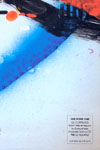 Five Point One is comprised of two discs: a DVD compiling all ten the videos from Cornelius's 2002 album Point
and an audio CD of remixes from the album contributed by fans as part
of a contest. The videos, while creative, have a subtle, background
feel to them, and seem to be intended more for use in Cornelius's live
shows than on their own (and indeed, they were played as a backdrop
during his tour for Point). While not wholly uninteresting, the
videos are static in their content, usually relying on one or two
primary images. "Point of View Point" shows cars and trains in motion,
while "Drop" features a little boy standing in front of a sink while
the water, synchonized to the beat, drips into the basin. The most
enjoyable of the videos is "Tone Twilight Zone," with its images of two
fingers walking (Yellow Pages-style) through a landscape of ordinary
household objects. The remix CD, PM, is a mixed bag, running
the gamut from electronic dance to japanoise to thrashy rock. Some are
cute and catchy, and others are forgettable.
Five Point One is comprised of two discs: a DVD compiling all ten the videos from Cornelius's 2002 album Point
and an audio CD of remixes from the album contributed by fans as part
of a contest. The videos, while creative, have a subtle, background
feel to them, and seem to be intended more for use in Cornelius's live
shows than on their own (and indeed, they were played as a backdrop
during his tour for Point). While not wholly uninteresting, the
videos are static in their content, usually relying on one or two
primary images. "Point of View Point" shows cars and trains in motion,
while "Drop" features a little boy standing in front of a sink while
the water, synchonized to the beat, drips into the basin. The most
enjoyable of the videos is "Tone Twilight Zone," with its images of two
fingers walking (Yellow Pages-style) through a landscape of ordinary
household objects. The remix CD, PM, is a mixed bag, running
the gamut from electronic dance to japanoise to thrashy rock. Some are
cute and catchy, and others are forgettable.
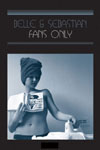 Fans Only
takes on the task of documenting Belle & Sebastian's inception in
1995 through their seven years of recordings for Matador and Jeepster.
Their videos and live footage from various performances around ther
world are interwoven into behind-the-scenes material and interviews.
The videos proper are largely charmingly appropriate twee shots of the
band (there are at least a few where they're seen clutching various
stuffed animals) and their friends using super-8 cameras and other
low-budget equipment. Highlights include a rendition of France Gall's
"Poupee de Cire, Poupee de Son," recorded for French television and the
video for "Legal Man," which features the band decked out in full mod
regalia on stage in a decadent nightclub surrounded by freely flowing
martinis and bellydancers, and a hilarious interview with the band for
a Brazilian TV show. Clocking in at 136 minutes, Fans Only
drags at times, but is for the most entertaining and does an excellent
job of capturing the lighthearted, playful essence of the band.
Fans Only
takes on the task of documenting Belle & Sebastian's inception in
1995 through their seven years of recordings for Matador and Jeepster.
Their videos and live footage from various performances around ther
world are interwoven into behind-the-scenes material and interviews.
The videos proper are largely charmingly appropriate twee shots of the
band (there are at least a few where they're seen clutching various
stuffed animals) and their friends using super-8 cameras and other
low-budget equipment. Highlights include a rendition of France Gall's
"Poupee de Cire, Poupee de Son," recorded for French television and the
video for "Legal Man," which features the band decked out in full mod
regalia on stage in a decadent nightclub surrounded by freely flowing
martinis and bellydancers, and a hilarious interview with the band for
a Brazilian TV show. Clocking in at 136 minutes, Fans Only
drags at times, but is for the most entertaining and does an excellent
job of capturing the lighthearted, playful essence of the band. 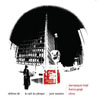 MIO continues what's looking like a campaign to reissue all the lost gems of the Nurse With Wound list with this long-forgotten and seminal document of the French progressive scene. Birgé Gorgé Shiroc were Jean-Jacques Birgé, Francis Gorgé, and Shiroc before the first two formed the flagship prog collective Un Drame Musical Instantane. Recorded in 1975, Défense de is their only record under the BGS moniker, entering the arms of obscurity only one year before Un D.M.I. became active. As such, the record paints a picture of the Birgé and Gorgé in an early stage of their development, but one that was already overflowing with good ideas.
MIO continues what's looking like a campaign to reissue all the lost gems of the Nurse With Wound list with this long-forgotten and seminal document of the French progressive scene. Birgé Gorgé Shiroc were Jean-Jacques Birgé, Francis Gorgé, and Shiroc before the first two formed the flagship prog collective Un Drame Musical Instantane. Recorded in 1975, Défense de is their only record under the BGS moniker, entering the arms of obscurity only one year before Un D.M.I. became active. As such, the record paints a picture of the Birgé and Gorgé in an early stage of their development, but one that was already overflowing with good ideas.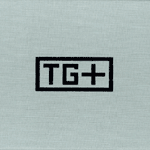 Everybody should know by now that this boxed set completes the CD collection of all the live Throbbing Gristle concerts begun with the CD release of 24 about a year ago. Complain all you want about cashing in or whatever, but for the package, it's an appropriate price.
Everybody should know by now that this boxed set completes the CD collection of all the live Throbbing Gristle concerts begun with the CD release of 24 about a year ago. Complain all you want about cashing in or whatever, but for the package, it's an appropriate price. Some bands just come together and beautiful sounds start to flow out.It's rare, but when it happens and the band is a true collaborationreflecting equal parts of all involved it can be truly amazing. LukeSutherland has made some fascinating music with Long Fine Killie andBows, as well as contributing lovely violin to recent Mogwai releases.Volker Bertelmann is making a name for himself with the electronic popmachinations of Tontraeger, and the two decided a project togethermight be in order. After working together a short time, withSutherland's smooth vocals and delicate guitar complementingBertelmann's beats and keys quite nicely, the two decided some bassmight round out the sound a bit better. Enter workaholic StefanSchneider, who loved what he heard and jumped in, becoming a fullmember of the band and adding his own trademark flavorings. This isindeed the aforementioned rare musical tour de force; the soundtrack ofwaking dreams, remembering what just happened in the mind and knowingthat it was truly magnificent. Sutherland's lyrics are freshly bizarrewhen present ("boy bands just escape me", "that's just fuckingheartbreak if you're a guy"), but it's clear why his work as an authorhas been lavished in recent years: he has a poet's heart with asatirist's delivery. The two electronic gurus craft a comfortable bedfor it all to lie on, and lie it does, like a young couple staring atthe clouds or stars above in wistful complacence. Even when Sutherlanddoesn't feel the need to sing and the trio just play, it's trulyhair-raising all over the place. Perfect programmed beats and chimingguitars meet with low dull bass and Rhodes in ways that are guaranteedto put a smile on the face. This is one I'll want to hear more of inthe future, I'm sure, and hopefully they're game to make it.
Some bands just come together and beautiful sounds start to flow out.It's rare, but when it happens and the band is a true collaborationreflecting equal parts of all involved it can be truly amazing. LukeSutherland has made some fascinating music with Long Fine Killie andBows, as well as contributing lovely violin to recent Mogwai releases.Volker Bertelmann is making a name for himself with the electronic popmachinations of Tontraeger, and the two decided a project togethermight be in order. After working together a short time, withSutherland's smooth vocals and delicate guitar complementingBertelmann's beats and keys quite nicely, the two decided some bassmight round out the sound a bit better. Enter workaholic StefanSchneider, who loved what he heard and jumped in, becoming a fullmember of the band and adding his own trademark flavorings. This isindeed the aforementioned rare musical tour de force; the soundtrack ofwaking dreams, remembering what just happened in the mind and knowingthat it was truly magnificent. Sutherland's lyrics are freshly bizarrewhen present ("boy bands just escape me", "that's just fuckingheartbreak if you're a guy"), but it's clear why his work as an authorhas been lavished in recent years: he has a poet's heart with asatirist's delivery. The two electronic gurus craft a comfortable bedfor it all to lie on, and lie it does, like a young couple staring atthe clouds or stars above in wistful complacence. Even when Sutherlanddoesn't feel the need to sing and the trio just play, it's trulyhair-raising all over the place. Perfect programmed beats and chimingguitars meet with low dull bass and Rhodes in ways that are guaranteedto put a smile on the face. This is one I'll want to hear more of inthe future, I'm sure, and hopefully they're game to make it. 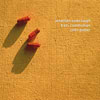 This is the sound of inner experience. Isolation drifts over the bodyand the soul, trapped in a mist that slowly reveals itself over thecourse of these two discs. Jonathan Coleclough, Steven Miller, andColin Potter are all gurus of the meditative and sublime, crafting fromseemingly thin air the most delicate and shattering of sounds. This isthe hinge of their music; the juxtaposition that carries with it theforce of every living particular in the universe. Though seeminglydelicate and composed of broken clocks, cold wind through the trees,and the metallic OMof consciousness, every track has a heaviness or a weight that can feelparanoid or transcendental. Bass Communion's mix of Potter andColeclough's "Yossaria" begins as a thick grinding of sludge passingthrough layers of crust before emerging out of the darkness with thecall of a fog horn in the distance. Afterwards, the song is alldesolation and the slow collapse of time. Bass Communion virtuallystrips away all conceptual possibilities and leaves only a thing,gorgeous and nameless, to communicate with. By the end of the songbirds are chirping and the sound of a river passes by in thebackground; it truly feels like a journey from the unreal to tangiblecomfort. Potter and Coleclough both contribute two mixes. Potter sticksto a generally soft approach that only escalates the mystical aurasurrounding much of the album; his rendition of "Raiser" blendsrhythmic pulses with the chaos of a futuristic hospital bleeding thesickly glow of fluorescent lights. It's Coleclough's work that takesthe cake, however. "Pethidine" is a twenty-eight minute pause, frozenperfectly in space and time. It develops and unfolds slowly, revealingeach of its particularities only to show that they are indeed oneentity turning inside out. The effect of listening to this as loud ashumanly possible is outstanding; being surrounded physically by thissound has literally kept me warm at night. It isn't suffocation, but itis a presence. The second disc included is Coleclough's secondcontribution and the final piece of the album. Clocking in atseventy-four minutes long, "Epidural" manages to erase all memory, allsensation, and leave only the truth of intuition in its wake. Thismusic deserves a change to be recognized; its immediacy, weight, andthrust is unequalled in much of the music I know.
This is the sound of inner experience. Isolation drifts over the bodyand the soul, trapped in a mist that slowly reveals itself over thecourse of these two discs. Jonathan Coleclough, Steven Miller, andColin Potter are all gurus of the meditative and sublime, crafting fromseemingly thin air the most delicate and shattering of sounds. This isthe hinge of their music; the juxtaposition that carries with it theforce of every living particular in the universe. Though seeminglydelicate and composed of broken clocks, cold wind through the trees,and the metallic OMof consciousness, every track has a heaviness or a weight that can feelparanoid or transcendental. Bass Communion's mix of Potter andColeclough's "Yossaria" begins as a thick grinding of sludge passingthrough layers of crust before emerging out of the darkness with thecall of a fog horn in the distance. Afterwards, the song is alldesolation and the slow collapse of time. Bass Communion virtuallystrips away all conceptual possibilities and leaves only a thing,gorgeous and nameless, to communicate with. By the end of the songbirds are chirping and the sound of a river passes by in thebackground; it truly feels like a journey from the unreal to tangiblecomfort. Potter and Coleclough both contribute two mixes. Potter sticksto a generally soft approach that only escalates the mystical aurasurrounding much of the album; his rendition of "Raiser" blendsrhythmic pulses with the chaos of a futuristic hospital bleeding thesickly glow of fluorescent lights. It's Coleclough's work that takesthe cake, however. "Pethidine" is a twenty-eight minute pause, frozenperfectly in space and time. It develops and unfolds slowly, revealingeach of its particularities only to show that they are indeed oneentity turning inside out. The effect of listening to this as loud ashumanly possible is outstanding; being surrounded physically by thissound has literally kept me warm at night. It isn't suffocation, but itis a presence. The second disc included is Coleclough's secondcontribution and the final piece of the album. Clocking in atseventy-four minutes long, "Epidural" manages to erase all memory, allsensation, and leave only the truth of intuition in its wake. Thismusic deserves a change to be recognized; its immediacy, weight, andthrust is unequalled in much of the music I know. It might be easy to think about this, Jeck's seventh solo release, as marking a maturation or a refinement of the artist's sound, but that analysis cheapens the singular vision he's established over the past years. Sure, he arrived in the wake of Christian Marclay's ground-breaking turntable explorations, after groups like Zoviet France had set the bar for grainy, delay-ridden loopscapes, but Jeck has, since his beginnings, created some of the most distinctive music to emerge from either turntablist or ambient traditions.
It might be easy to think about this, Jeck's seventh solo release, as marking a maturation or a refinement of the artist's sound, but that analysis cheapens the singular vision he's established over the past years. Sure, he arrived in the wake of Christian Marclay's ground-breaking turntable explorations, after groups like Zoviet France had set the bar for grainy, delay-ridden loopscapes, but Jeck has, since his beginnings, created some of the most distinctive music to emerge from either turntablist or ambient traditions.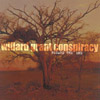 Death is an opportunity, a chance to either lament the loss orappreciate what is being left. It is the struggle to go off in fear, indoubt or to depart with head held high. In any case, it is a subjectthat is difficult to approach head on—and probably for the best, as thetrue weight of dying lies not in the act itself but in everythingleading up to it. Regard the Endapproaches death obliquely, offering the feelings, textures, andmusings on life that make death such a spectacular event. There areslices of youthful abandon, loving memories and bitter regrets thathave rooted themselves in, and make the sting of passing even greater.It's the challenge to look back, to leave those thoughts behind,fearful yet hopeful, uncertain yet faithful, and embrace the totalityof it all. The Willard Grant Conspiracy explores these subjects with aversatile troupe of players, attacking their pieces with such a collageof instrumentation and tender arrangement, the songs bud and bloomright before your eyes. Somber acoustic guitar anchors the gruff,weathered vocals of singer Robert Fisher, the centerpiece of anensemble that offers dense, soaring trumpets and weary viola moans. Theheavy lineup grants Regard the End remarkable impact, allowingevery intonation and accent creep across and drive the emotion home.The opening song, "River in the Pines," is a civil war era ballad thatrambles on in a smoky, smoldering mass, crackling and waiting to popopen in a fiery burst. The mix of both traditional folk songs andoriginal works allows for personal expression and insight as well as amuch wider concept of the subject matter through time. A particularstrength of the Willard Grant Conspiracy, along with the utilization oftheir individual parts is the use of guest singers to help add to theatmosphere of their songs. Kristin Hersh appears on "The Ghost of theGirl in the Well," with an eerie contribution to the tale of a murderedyoung girl. She and fisher share the words and their pacing sets theentire scene in slow motion, drawing every last bit of feeling andpower from the disturbing imagery. Hersh's echoing, distant wails areaffecting as they sink into the depths of the music. Singer Jess Kleinalso contributes a set of stunning vocal performances on "The Trials ofHarrison Hayes," and several other songs. These additions strengthenthe already powerful punch in the Conspiracy's music. "The SufferingSong" is the emotional crux of Regard the End, with Fisher andKlein finding themselves on the edge and greeting the uncertainty ofwhat's beyond it with the certainty of what is there. "Suffering'sgonna come to everyone, someday." There is a restrained grace in theirvoices that makes the end of the journey feel less like a defeat andmore like a triumph. The ability to find strength and composure throughsorrow and adversity shines through and closes the album on a gloriousnote.
Death is an opportunity, a chance to either lament the loss orappreciate what is being left. It is the struggle to go off in fear, indoubt or to depart with head held high. In any case, it is a subjectthat is difficult to approach head on—and probably for the best, as thetrue weight of dying lies not in the act itself but in everythingleading up to it. Regard the Endapproaches death obliquely, offering the feelings, textures, andmusings on life that make death such a spectacular event. There areslices of youthful abandon, loving memories and bitter regrets thathave rooted themselves in, and make the sting of passing even greater.It's the challenge to look back, to leave those thoughts behind,fearful yet hopeful, uncertain yet faithful, and embrace the totalityof it all. The Willard Grant Conspiracy explores these subjects with aversatile troupe of players, attacking their pieces with such a collageof instrumentation and tender arrangement, the songs bud and bloomright before your eyes. Somber acoustic guitar anchors the gruff,weathered vocals of singer Robert Fisher, the centerpiece of anensemble that offers dense, soaring trumpets and weary viola moans. Theheavy lineup grants Regard the End remarkable impact, allowingevery intonation and accent creep across and drive the emotion home.The opening song, "River in the Pines," is a civil war era ballad thatrambles on in a smoky, smoldering mass, crackling and waiting to popopen in a fiery burst. The mix of both traditional folk songs andoriginal works allows for personal expression and insight as well as amuch wider concept of the subject matter through time. A particularstrength of the Willard Grant Conspiracy, along with the utilization oftheir individual parts is the use of guest singers to help add to theatmosphere of their songs. Kristin Hersh appears on "The Ghost of theGirl in the Well," with an eerie contribution to the tale of a murderedyoung girl. She and fisher share the words and their pacing sets theentire scene in slow motion, drawing every last bit of feeling andpower from the disturbing imagery. Hersh's echoing, distant wails areaffecting as they sink into the depths of the music. Singer Jess Kleinalso contributes a set of stunning vocal performances on "The Trials ofHarrison Hayes," and several other songs. These additions strengthenthe already powerful punch in the Conspiracy's music. "The SufferingSong" is the emotional crux of Regard the End, with Fisher andKlein finding themselves on the edge and greeting the uncertainty ofwhat's beyond it with the certainty of what is there. "Suffering'sgonna come to everyone, someday." There is a restrained grace in theirvoices that makes the end of the journey feel less like a defeat andmore like a triumph. The ability to find strength and composure throughsorrow and adversity shines through and closes the album on a gloriousnote.  Sitting down to listen to this disc for the first time, I figured that I was going to get something along the lines of Loveman Plays Psychedelic Swing(three-fourths of Emergency! is also in the Quintet, the discs wererecorded nine months apart, etc.), and instead, I got a trip back toGround-Zero's Plays Standards, courtesy of, of all things,Kikuchi Naruyoshi's sax playing. Seven very long and productive yearsago, it grated on my nerves with its schmaltzy tenor intensity, and itstill does, only now it's rounded out by another guy on alto andsoprano. Thankfully, just when the two of them threaten to drag theshoulder-scrunching out a bit too long on "Song for Che", they'reslapped aside by the wailing guitar and thudding drums of Otomo's own"Reducing Agent" in one of the most welcome transitions I've heard inmonths. The original tunes aren't especially brilliant, and they lackeasy hooks that they can be identified by, but they also give the albumand ensemble the feeling of being defined by more than just somebody'srecord collection. Similarly, while I'm not wild about Sachiko M'scontribution of sine waves to a Mingus tune, her involvement in thelast two tracks clearly shows off how her repertoire has grown sinceher sample-triggering days. (Mind you, any one of two dozen otherrecordings from the last couple of years would do this just as well.)Yoshigaki Yasuhiro's drumming leans towards the energetic and heavymost of the time, but it's never distracting, and it's even downrightpretty when he scales it back to brushed cymbals. Aside from the saxbits that get my hackles up, then, this is the kind of revisitingproject that I wish more artists would tackle: instead of just remixingtwenty-year-old tapes and grinding out some 12"s for the hell of it,ONJQ have gone back to old notions and produced an album that reflectshow they've changed as musicians. If we're lucky, things will be justas fresh in 2011.
Sitting down to listen to this disc for the first time, I figured that I was going to get something along the lines of Loveman Plays Psychedelic Swing(three-fourths of Emergency! is also in the Quintet, the discs wererecorded nine months apart, etc.), and instead, I got a trip back toGround-Zero's Plays Standards, courtesy of, of all things,Kikuchi Naruyoshi's sax playing. Seven very long and productive yearsago, it grated on my nerves with its schmaltzy tenor intensity, and itstill does, only now it's rounded out by another guy on alto andsoprano. Thankfully, just when the two of them threaten to drag theshoulder-scrunching out a bit too long on "Song for Che", they'reslapped aside by the wailing guitar and thudding drums of Otomo's own"Reducing Agent" in one of the most welcome transitions I've heard inmonths. The original tunes aren't especially brilliant, and they lackeasy hooks that they can be identified by, but they also give the albumand ensemble the feeling of being defined by more than just somebody'srecord collection. Similarly, while I'm not wild about Sachiko M'scontribution of sine waves to a Mingus tune, her involvement in thelast two tracks clearly shows off how her repertoire has grown sinceher sample-triggering days. (Mind you, any one of two dozen otherrecordings from the last couple of years would do this just as well.)Yoshigaki Yasuhiro's drumming leans towards the energetic and heavymost of the time, but it's never distracting, and it's even downrightpretty when he scales it back to brushed cymbals. Aside from the saxbits that get my hackles up, then, this is the kind of revisitingproject that I wish more artists would tackle: instead of just remixingtwenty-year-old tapes and grinding out some 12"s for the hell of it,ONJQ have gone back to old notions and produced an album that reflectshow they've changed as musicians. If we're lucky, things will be justas fresh in 2011. 
